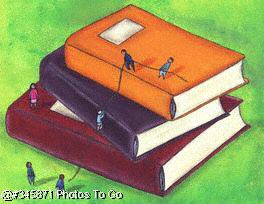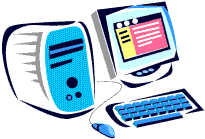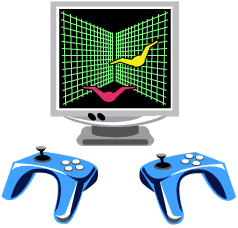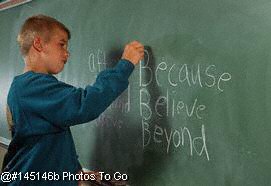|
Negative or adverse behaviors are not really a symptom of Asperger Syndrome. When a person with Asperger Syndrome exhibits unusual negative behavior it is an indicator that something is not making sense to them. The person with Asperger Syndrome needs to know that someone or something can help him make things make sense again. They are not scheming manipulative people, they simply need to have a sense of being in control of their surroundings. If things are not predictable they may become confused and have difficulty expressing just what it is that is bothering them. In the classroom setting in basically all ages, the work that is assigned to them must have a purpose for them. Older students may be willing to do the work because they want a good grade (or a college degree) even if they see no point in the actual work. They rarely want to do anything unless there is something "in it" for them. Younger children often do not care about grades, so they need something else to motivate them. A teaching strategy that has proven effective many times is a Token Economy System.
A Token Economy System is basically a "paycheck" for doing schoolwork and good behavior. Because the person with Asperger Syndrome often does not see the benefit in doing certain tasks, an incentive may need to be provided. This may be seen by some as a "bribe", but for the person with Asperger Syndrome it is a critical strategy designed to provide the answer to the question "What's in it for me?". The website below provides a good description of Token Economy Systems and how they work.
Token Economy System POLYXO website There needs to be a clear "beginning" and "end" to all tasks assigned to the person with Asperger Syndrome. Many of them will not stop working until the task is "done". If the task is "open ended" they may become very frustrated at not knowing when they are "finished". It is not advisable to give an assignment such as "do as much as you can" or "just do a few pages" There needs to be a clear perameter around the task, either a time limit such as "work for 20 minutes" or "Do pages 5, 6 & 7". People with Asperger Syndrome often do not like repetitive exercises such as "write the word five times". Again behavior strategies may be helpful.
Sometimes the use of "break cards" may be warranted. When a "challenging" behavior is occuring a child with Asperger Syndrome may just need some time to sort out things in their mind. The challenging behavior may be the only means they have of getting the break they need. Some educators suggest the use of "break cards". The cards with the word "BREAK" or "I need a break" or some similar wording are made available to the child. He can be taught to request a break instead of exhibiting the challenging behavior. If the behavior is already occurring, the child can be directed to use the card by pointing or handing it to him. He would then be allowed to leave the room to go to a pre-designated location to regain control of himself. When he is calm he then returns to the task he was doing prior to the challenging behavior occuring. For more about the use of "Break Cards" see the website below.
Early Childhood Behavior Project "Requesting a Break" 
|  |

Christopher (see case study on "Visual Stategies" page) Would rather be playing video or computer games than be doing math (or just about anything else for that matter). This is in keeping with his "narrow range of interest" in the electronics world. A good "behavior strategy" might be to find computer games that are at his math level and let him do those instead of math on paper. Or it might be beneficial to give him "tokens" or "points" for doing his work that he can "cash in" later for computer time. It would depend on the goal which strategy would be better to use. If the teacher feels the child simply needs to have the math skill and it is not important that the child do the work on paper, the computer strategy might be good. However, the teacher may feel that it is essential that the child develop the practical skill of being able to do the work on paper in order to generalize the skill (probably true in most cases). In that case it might be wise to give the child a "reward" of some computer time after a certain number of problems are done on paper. If at all possible however, the teacher may want to make the activity "fun" by letting the child do the problems on the chalkboard or on a dry erase whiteboard using colorful markers, then transfer answers to paper.

Although many of the suggested strategies are found on early childhood education websites, most can be adapted for use with older children or even adults with Asperger Syndrome by the use of written instructions rather than pictures.

Often the handwriting of children with Asperger Syndrome is messy or even illegible. There are indications that this does not improve with time, and that people with Asperger Syndrome often detest writing assignments as a result. Some educators suggest that teaching a child keyboarding at an early age may help circumvent this difficulty
|
|
The person with Asperger Syndrome thrives on "positive reinforcement". They have a strong need to know that they are doing the "right" thing, whether it be in social interactions or classwork. They don't just naturally "know" and may seek reasurance from the people helping them. It is human nature to have this need to be accepted, but for the person with Asperger Syndrome is almost a necessity. It is therefore important to focus on the "positive" with them. Instead of pointing out what they have not done yet, praise them for what they have done and help them get focused on what they need to do "next".

|  |
People with Asperger Syndrome tend to dislike "creative" writing activities. Because they think "literally" they often are unable to "predict" what will will happen "next", or to "make up" a story about something. This need is often so strong that a student with Asperger Syndrome may read the entire story to find out what "really" happened when they are only asked to tell what they "think" may happen. Some educators consider this a real problem while others do not feel it is of much consequence. Critical thinking is a skill that does not come naturally to many people but especially to persons with this syndrome. There is no "right" or "wrong" answer on this one, but it does bear some consideration. A person with Asperger Syndrome probably would not function well in a "creative" writing class, but might do very well in a Journalism class. Educators simply need to make a judgement call on this and decide whether it is more important for the student to be "successful" or to simply do the required work (possibly with very poor results)
|



